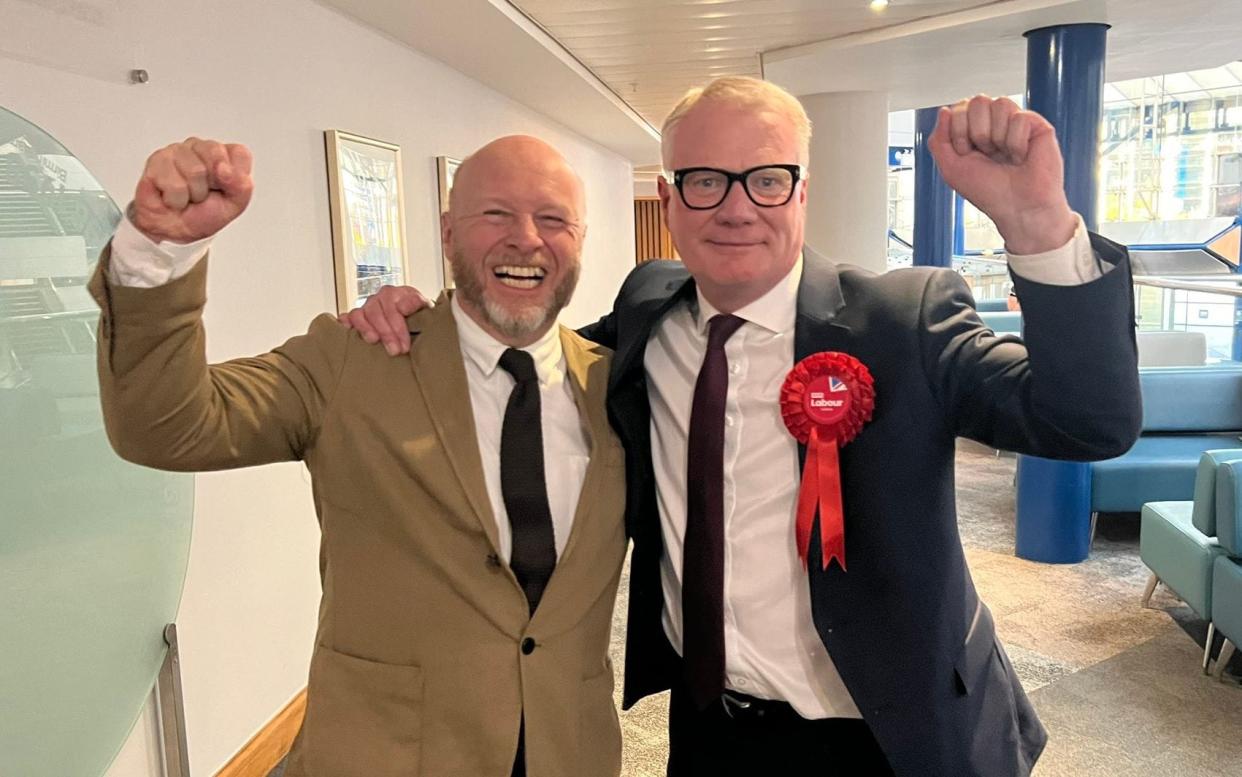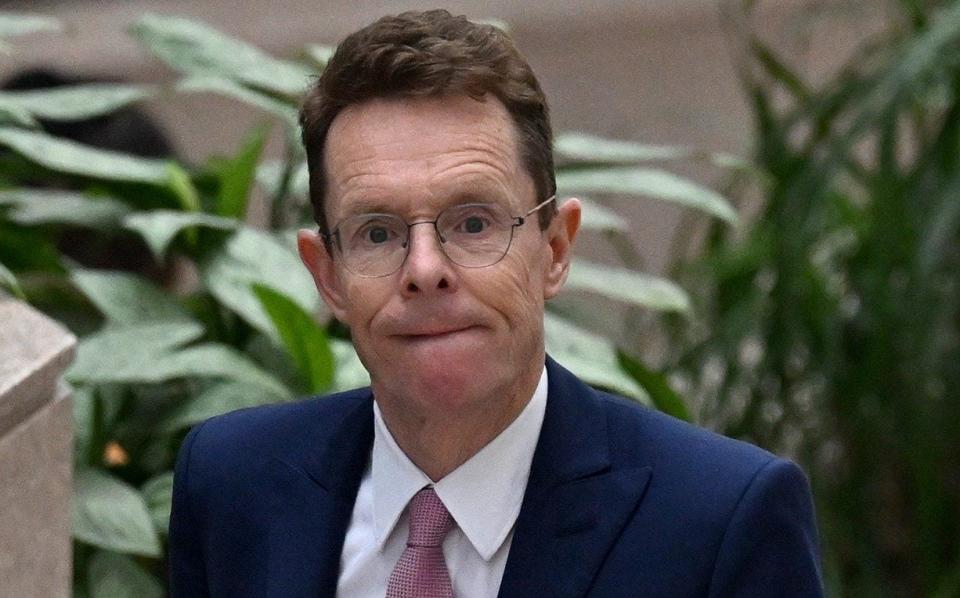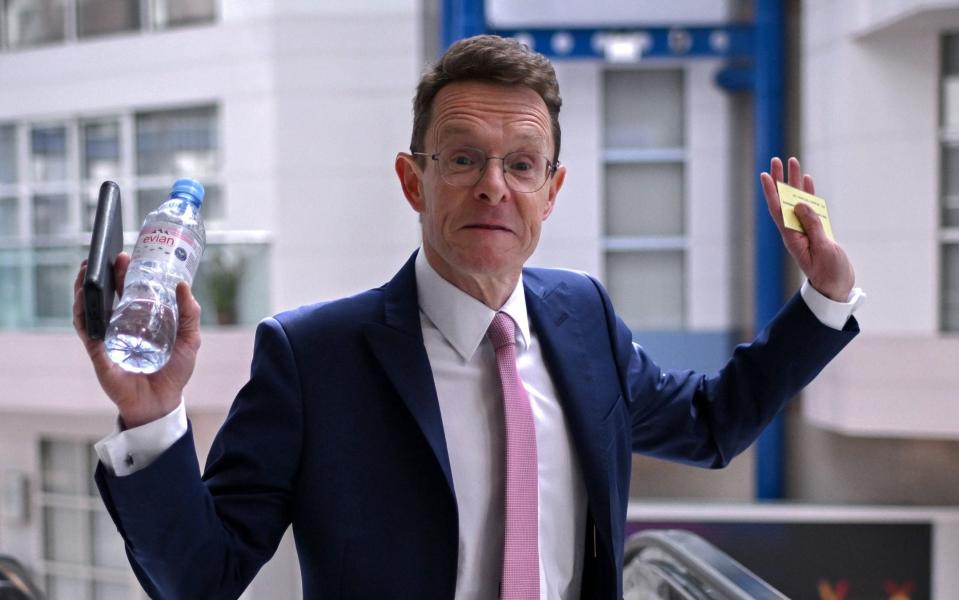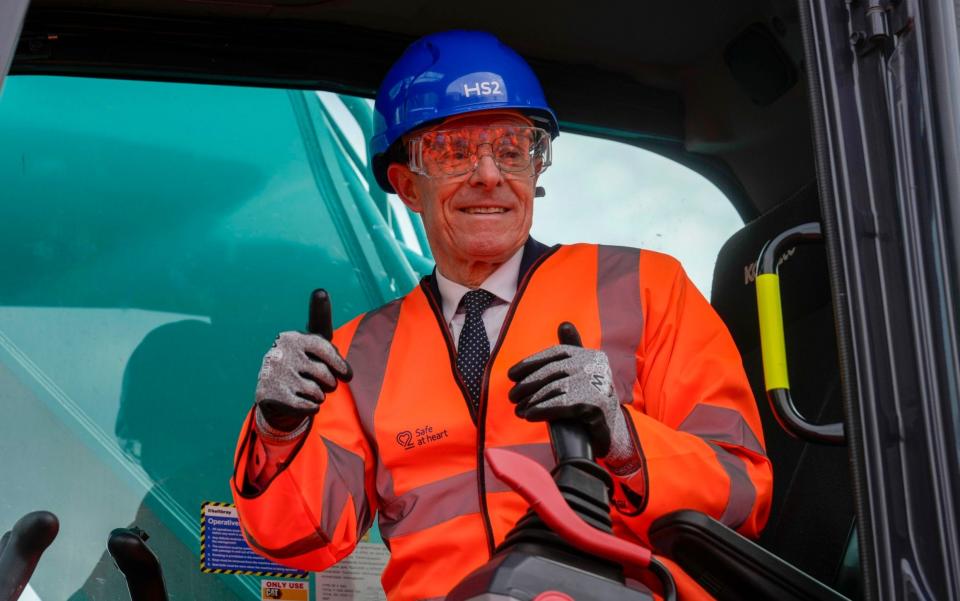Andy Street toppled as West Midlands mayor in devastating blow to Tories

It was meant to represent a beacon of hope for Rishi Sunak and the Conservative Party. Up and down the country, the week’s local elections had, save for a few exceptions, provided scant reason for cheer – especially ahead of an impending general election. But in the West Midlands, the chances of Andy Street being re-elected as the region’s mayor were encouraging. If not quite a beacon, it was at least a flicker.
As it was, after an extraordinary day of drama in the International Conference Centre in Birmingham, Labour’s relatively low-profile candidate Richard Parker managed to topple Street, seven years and two terms after he took charge as mayor in the very centre of Britain. “It’s too close to call” is a political cliché heard frequently, and often uttered out of blind optimism, at election counts. In this case it was absolutely true. The final result was 225,590 to 224,082, giving the Labour candidate a win by 1,508 votes.
Whenever he was glimpsed in the hall in Birmingham, even before his shock victory, Mr Parker looked as if he could barely believe it, holding his hands in prayer and pacing with nervous energy. Street, who’d bounded in with a “We’ll see!” to reporters earlier in the day, kept to a private room in the bowels of the building, but must have felt even less credulous. And 120 miles away in Westminster, Rishi Sunak must have been speechless.
The message to the Prime Minister was clear. Mr Sunak and Mr Street have never been best friends, but if the highly rated, uber-slick mayor – a golden boy to many Conservatives, who was seen as an example of how to win in the Labour heartlands – can be as vulnerable on the ballot paper as all other unseated Conservative incumbents around the country, the challenge facing the party at the general election is even greater than first thought.

By 6pm, as a recount was ordered in Coventry, one of the seven areas comprising the West Midlands Combined Authority, people of all political persuasions were wondering quite how an election that only 24 hours earlier had seemed a sure Street victory, came to be on a knife-edge.
In his victory, Mr Parker, a former public finance accountant and partner at PwC, had defied not just Mr Street’s apparent popularity, but persistent allegations made by Conservative MP Gary Sambrook - and firmly denied by the Labour politician - that he wrongly claimed to live in the area in order to get on the ballot paper. The feat also appeared at odds with a suggestion the Labour vote had collapsed in the region due to anger in the Muslim community over Sir Keir Starmer’s policy on the Israel-Gaza conflict.
His success now provokes an unexpected question over the future of Street’s political career, which up to now has been on a steady, controlled ascent. Street, a man always across his brief, up first and out last, who’s so in control that scarcely a door closes in his offices without his say-so, had been handed a remarkable shock.
“Andy Street has demonstrated that Conservatives in government really do things for the people they represent,” Andrew Mitchell, the Deputy Foreign Secretary and MP for Sutton Coldfield, in Birmingham, told the BBC as he waited for a sign of life from the count. He had, Mitchell insisted, “bucked the trend”. It was proof that the government still sees Mr Street just as it did seven years ago: as a role model for the rest of the party. Now that he has only followed the trend, that can no longer be claimed.
Mr Street, 60, is not a born West Midlander, but he’s as good as. When he was just a few months old, his family (he has a brother and a sister) moved from Banbury, in Oxfordshire, to the Northfield area of Birmingham. His father was a metallurgist; his mother a hospital laboratory worker. At Keble College, Oxford, he studied Politics, Philosophy and Economics, he became president of the University Conservative Association, and admired Margaret Thatcher – albeit only up to a point.

“I felt economic success had to be balanced by much more socially inclusive policies, and I don’t believe she achieved that,” he once told The Telegraph. He applied to be a social worker, but Birmingham City Council turned him down. Instead, in 1985, he joined John Lewis. Initially he sold vacuum cleaners, but rose to become managing director in 2007.
Nine years later, after overseeing a 50 per cent increase in sales and doubling the number of stores, he abruptly quit his £1 million-a-year-role, announcing he was standing to be the first mayor of the West Midlands Combined Authority. In announcing his intentions, he insisted the job “will need leadership from somebody who has a proven record, can bring people together and can represent us with passion. This election needs to go beyond traditional political loyalties and I look forward to seeking voters’ support for the job ahead.”
That Mr Street had a background as a salesman was hardly unhelpful in politics. A man of frenetic, restless energy, kept trim by regular half-marathons, his image – a smile and a slim blue suit, invoking the ‘my door is always open’, approachable executive vibe he continues to uphold – was as media-friendly as they come. Liam Byrne MP, his Labour opponent in the 2021 mayoral election, enjoyed using the line that Mr Street is “never knowingly under-photographed”, but up to now, many politicians could have learned from his savviness.
There were two main strands to his personal pitch: that he wasn’t a career politician, and he wouldn’t be afraid to stand up to the government. Last week, his supporters were still echoing those things. “He’s a proven successful businessman and not just a career politician, and people respect that. He’s a very effective mayor who just gets on with the job and the local people, ignoring the national picture,” John Murray, a Conservative councillor from Walsall, told The Telegraph.
He certainly ignores the national picture. Outraged by Mr Sunak scrapping the northern HS2 and acutely aware of the party’s reputation locally, it has been noted that Mr Street is the only metro-mayor not to mention his party allegiance in his X (formerly Twitter) biography. Even his campaign placards were a distinct shade of emerald, leading social media commentators to repeatedly quip: “I didn’t know you were running for the Green Party?”
Asked whether the latter point meant distancing himself from the government, something Mr Street is often accused of, Cllr Murray simply shrugged. “Well he doesn’t need to mention the government much but there should be more politicians willing to stand up to the national party.” Street was never going to credit the government if he’d won; he now has a challenge in blaming the government for his loss.

Both of Mr Street’s victories in the mayoral contest, in 2017 and 2021, were handsome enough to suggest that his separation from government was once thoroughly useful. From building new tram stations and three new railway stations; a house-building target of 15,257 new homes every year; and a bid for Birmingham to host the 2027 Invictus Games, his pledges in a prospective third term were centred once again on transport, housing and boosting the region internationally.
His personal popularity and apparent competence, in an area historically so red, meant Conservative MPs looked up to him. He clearly believed he could teach them something, too. In 2021 he wrote a column in a national newspaper under the headline: “What the Conservatives can learn from my ‘red wall’ victory, from keeping promises to avoiding division”. In one survey of West Midlands locals, 65 per cent of respondents could name the mayor compared to 45 per cent naming their MP. Tellingly, another survey asked if West Midlanders could name a single policy from his seven years. Barely 10 per cent could.
Mr Street’s ambitions have always been limited, or so he insisted. All he wants, he would tell anybody who suggested he must surely aspire to a higher office one day, is to get re-elected as mayor.
“The job isn’t done,” was his re-election message this year, uttered over and over as he traversed the West Midlands on the campaign trail. Well, the job is done, and one of the Tories’ only bright spots is extinguished. In Birmingham, all Street could do was ask how this could possibly happen.


